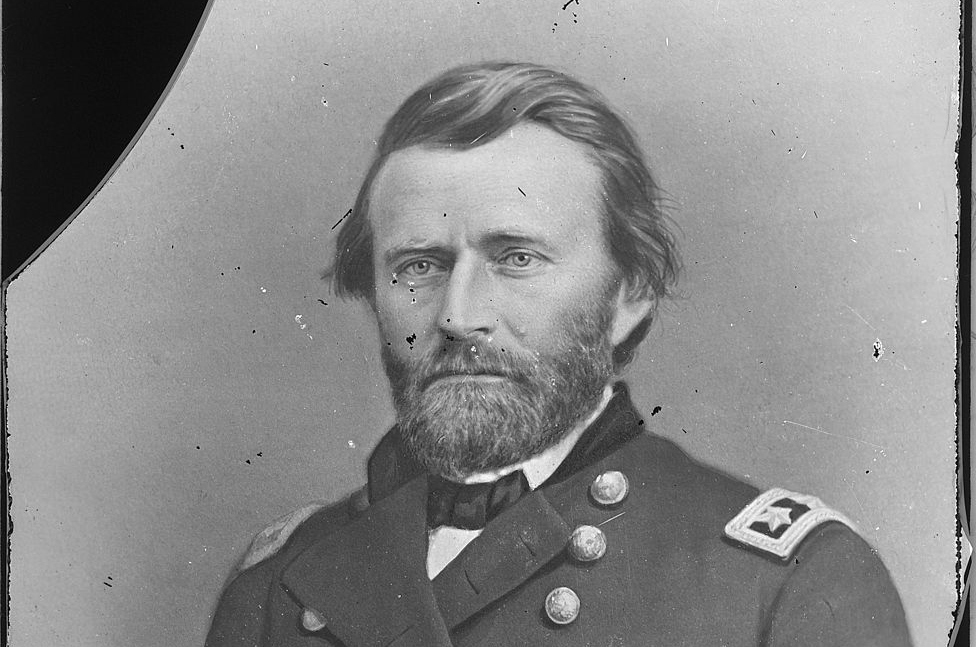Howl of the Day: May 10, 2016
On December 17th, 1862, Ulysses S. Grant, then a Major-General in the Union Army, ordered the expulsion of all Jews in the military district under his authority. The now infamous General Order No. 11, very quickly became controversial. Jewish groups and others protested it, Grant’s own staff in the military objected to it (noting, amongst other things, that there were Jews serving in their own ranks), Congress raised a stink, the press had a field day at Grant’s expense, and President Lincoln insisted that the order be revoked.
Fast-forward about 150 years into the future, and we see Donald J. Trump, the presumptive Republican nominee for President, vowing to create a “deportation force” to round up and expel illegal immigrants from the United States and musing aloud as to whether a database should be created to track Americans of the Muslim faith. There is a school of thought which holds that Trump’s plans are not so different from Grant’s General Order No. 11. The horrified response from the press, political establishment, and many public interest groups, is certainly analogous to what followed in the earlier case.
Comparing Trump to Grant is an instructive exercise.
On an optimistic note, Grant’s example offers some reason to hope that a President Trump, should he be elected, may not be as bigoted as Candidate Trump has been.
Grant was elected President of the United States in 1869, a short 7 years after issuing the clearly anti-Semitic General Order No. 11. Yet, as President, Grant displayed no such intolerance. In fact, Grant went on to establish a deep and abiding friendship with American Jewry. He took pains to qualify the intent of the order, which he had revoked in 1863, he prosecuted the KKK, he raised his voice against the persecution of Jews in Europe, appointed more Jews to high offices than any president before him, and even became the first president to attend a synagogue service.
As President, Grant devoted himself to securing and furthering American principles of justice. Those principles included, as he put it, having “no prejudice against sect or race,” and wanting “each individual to be judged by his own merit”.[1]
Whether a President Trump would respect these same principles is obviously an open question. Nothing he has done or said is as awful as an actual order to use military force against a religious minority. But his vulgar and offensive remarks about Mexicans – in this regard, Trump is quite heinous, speaking ill of an entire ethnic group in America, and one that is such a credit to the republic—are appalling. And he should receive far more approbation than he already has for the ignorant remarks that he has made about Muslims. It would appear that Trump’s sense of the principles that underlie such American ideals as religious liberty, which Ulysses S. Grant had spoken of long ago as an absence of “prejudice against sect” are only vaguely grasped by Trump and in an inchoate manner.
The comparison between the two men also underscores the absurdity of the claims that Donald Trump is a fascist. Trump can be inflammatory and vitriolic to be sure, but at this point, all he has done is to blow hot air—he is an overheated, pandering demagogue. Grant actually issued an order, backed by military force, to discriminate against US citizens based on religion.
Grant’s General Order No. 11 was far more fascistic than anything Trump has done or said. But, clearly, it would be absurd to call Grant a fascist. Intolerance, even bigotry mixed with threats of violence, is not the same as fascism.
When labeling Trump as fascist, commenters often point to the contempt for due process in his more bigoted remarks, and the cult-of-personality-like reverence that some of his followers have for him. Andrew Sullivan, for example, argues that Trump’s political movement “is clearly fascistic in its demonization of foreigners, its hyping of a threat by a domestic minority (Muslims and Mexicans are the new Jews), its focus on a single supreme leader of what can only be called a cult, and its deep belief in violence and coercion in a democracy that has heretofore relied on debate and persuasion”.
But what of this is really new or unique in American politics?
As even a quick glance at Grant’s career makes clear, democracy in America hardly relied solely on debate and persuasion before Trump. The Civil War, the Klu Klux Klan and the reversal of reconstruction-era civil rights in the Jim Crow South, endemic violence against Native Americans—violence or the threat of violence directed at “the other” within society appears frequently in the history of the United States.
And the focus on a single supreme leader hardly seems different from many other contemporary political campaigns. If Trump’s movement is a cult, so too is Bernie Sanders’—if anything, the latter’s followers seem even more messianic in their regard for their leader. And so too was Obama’s, George W. Bush’s, Reagan’s, as well of those of many others.
There can be no doubt that Trump makes some ludicrous promises that he can’t keep, about walls and security. In this, he is outdone again by Sanders, who promises free university, free healthcare, and a magical break up of big banks in the commercial republic. And Trump is just about on par with most other presidential candidates on the campaign trail when it comes to making promises that won’t or can’t be kept. The faithful are still waiting for Obama to close Guantanamo.
Trump has said some objectionable things, to be sure, but some racist remarks do not make him a fascist. They do not make him one any more than General Order No. 11 makes Ulysses S. Grant a fascist. Tyranny and demagoguery are broad political phenomena that are hardly limited to the fascist brand of either, and when we ignore the wider range of their appearances, we do so at our own peril. If we are always looking for Hitler we may overlook dangers that take other forms. Trump’s views on the general character of Mexican immigrants to this country and the alleged need for Muslim-Americans to carry ID cards[2] are antithetical to the spirit that made America great in the first place. But so too is his suggestion that campaign platforms don’t really matter, because everything is just a negotiating stance.[3] His politics are dangerous, even when they aren’t reminiscent of jackboots.
[1] The Papers of Ulysses S. Grant: July 1, 1868-October 31, 1869 19. Southern Illinois University Press. p. 37. ISBN 0-8093-1964-0
[2] http://thehill.com/blogs/ballot-box/presidential-races/260727-trump-wont-rule-out-database-special-id-for-muslims
[3] http://www.cnn.com/2016/05/08/politics/donald-trump-taxes-wealthy/index.html










You are not understanding Grant at all and drawing a false parallel between him and Trump. Grant’s order regarding Jews was all about economics and warfare. He issued similar orders regarding his own father. He felt plagued by all of the cross border smuggling going on at that time, most importantly cotton. He was certain it was hurting the war effort. When he used the word “Jews” he was, of course, repeating the cultural norm of that time. “Jews” meant shysters and swindlers of various types. He knew little or nothing of Jewishness. He was not a fascist, quite the contrary. He was a general, a warrior, fighting a desperate war with every tool he could command. The analogy with Trump is wrong. I have no idea what Trump might do as President but to make a comparison in any way with Grant does not hold any historical merit.
The article agrees with you that Grant was not at all a fascist.
“On an optimistic note, Grant’s example offers some reason to hope that a President Trump, should he be elected, may not be as bigoted as Candidate Trump has been.”
Comparisons with Grant aside, how’s that working out for you?
(Silly comment, I know, but I stumbled on this essay and couldn’t resist.
I have to agree with Margie. This article hasn’t aged well. For that matter it wasn’t exactly on point in the first place. Comparing a Grant’s years earlier actions to Trumps current (two years ago) campaign promises. I’m pretty sure Grant didn’t campaign on bigotry. Any updates? Or retractions?